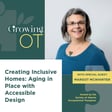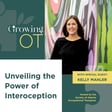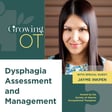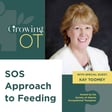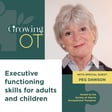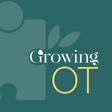
Navigating the Complexities of Mental Health and Addiction with Kimberly Bitz
In this episode of "Growing OT," host Wilmari Myburgh engages with Kimberly Bitz, an occupational therapist committed to improving mental health and addiction practices. Kimberly shares her professional journey, starting in various settings in Weyburn, and evolving into her dream role with the Community Recovery Team, focusing on acute mental health and addictions. She passionately advocates for harm reduction, challenging the abstinence-based models prevalent in healthcare.
Kimberly discusses her research, particularly her dissertation on advancing Canadian occupational therapy practices for harm reduction among women who consume alcohol. The conversation delves into the challenges and nuances of addressing substance use, misuse, and addiction through an occupational therapy lens, emphasizing the importance of meeting clients where they are and reducing stigma.
The episode also explores the impact of Canada's new low-risk drinking guidelines, societal biases, and the necessity of a trauma-informed, client-centered approach in healthcare. Kimberly underscores the significance of community engagement and social prescribing in her practice, advocating for a holistic approach to care. She concludes by highlighting the importance of continued learning, professional development, and advocacy to improve client outcomes in mental health and addiction services.
